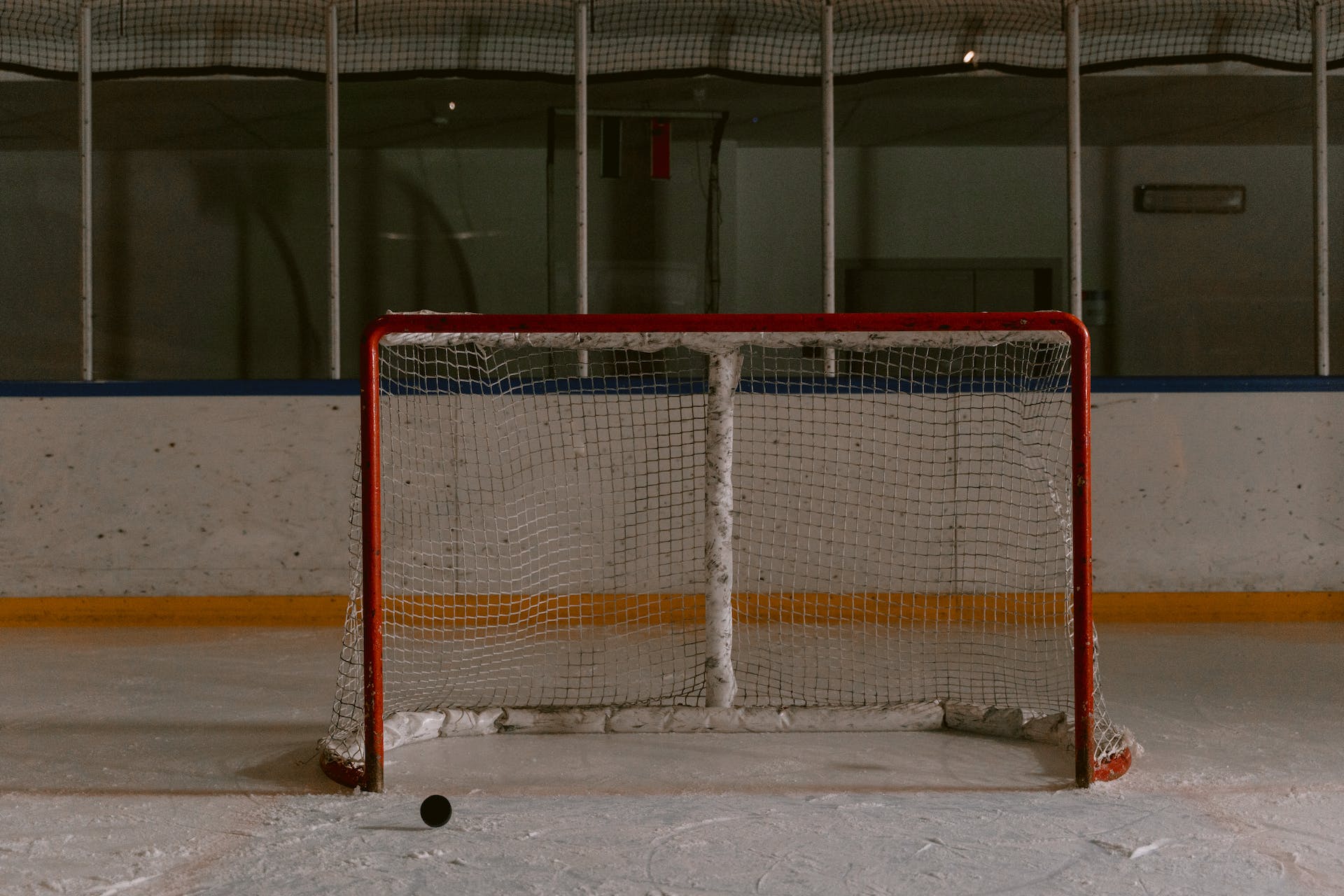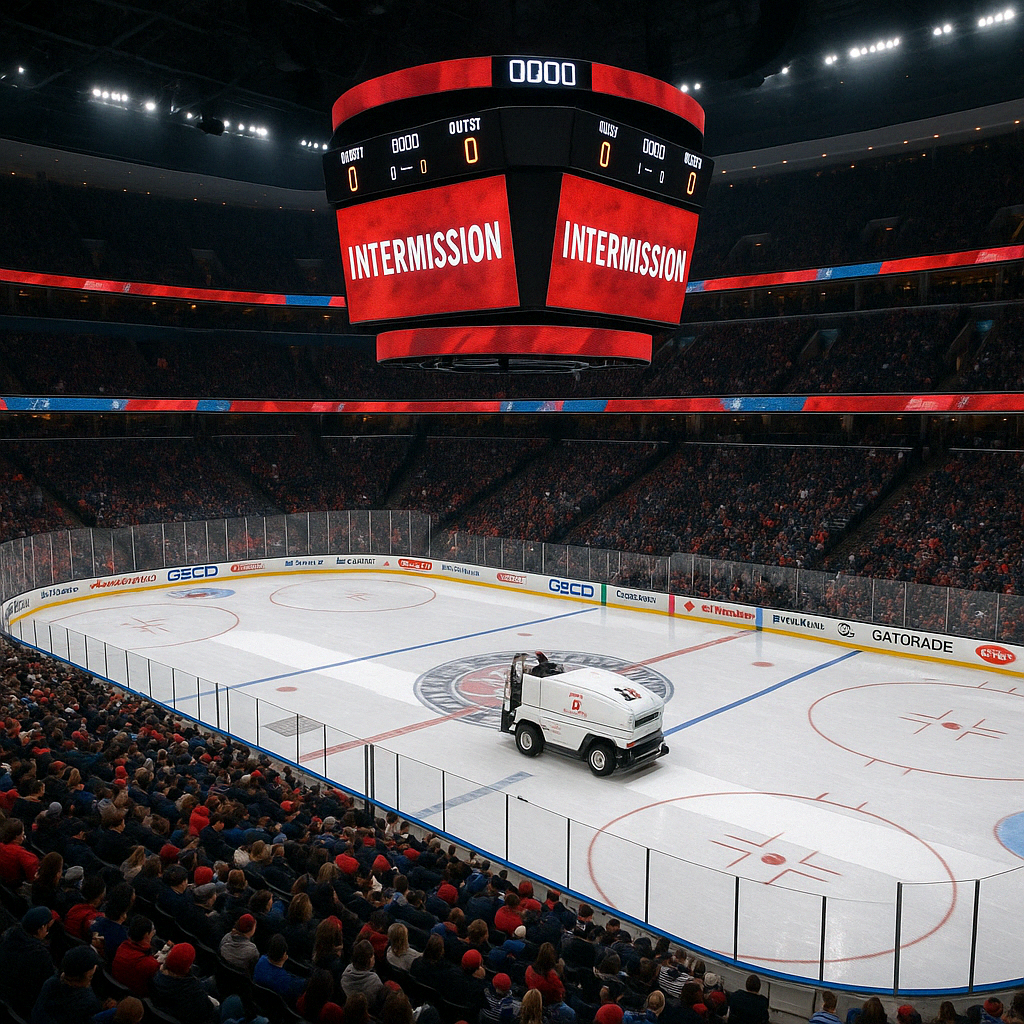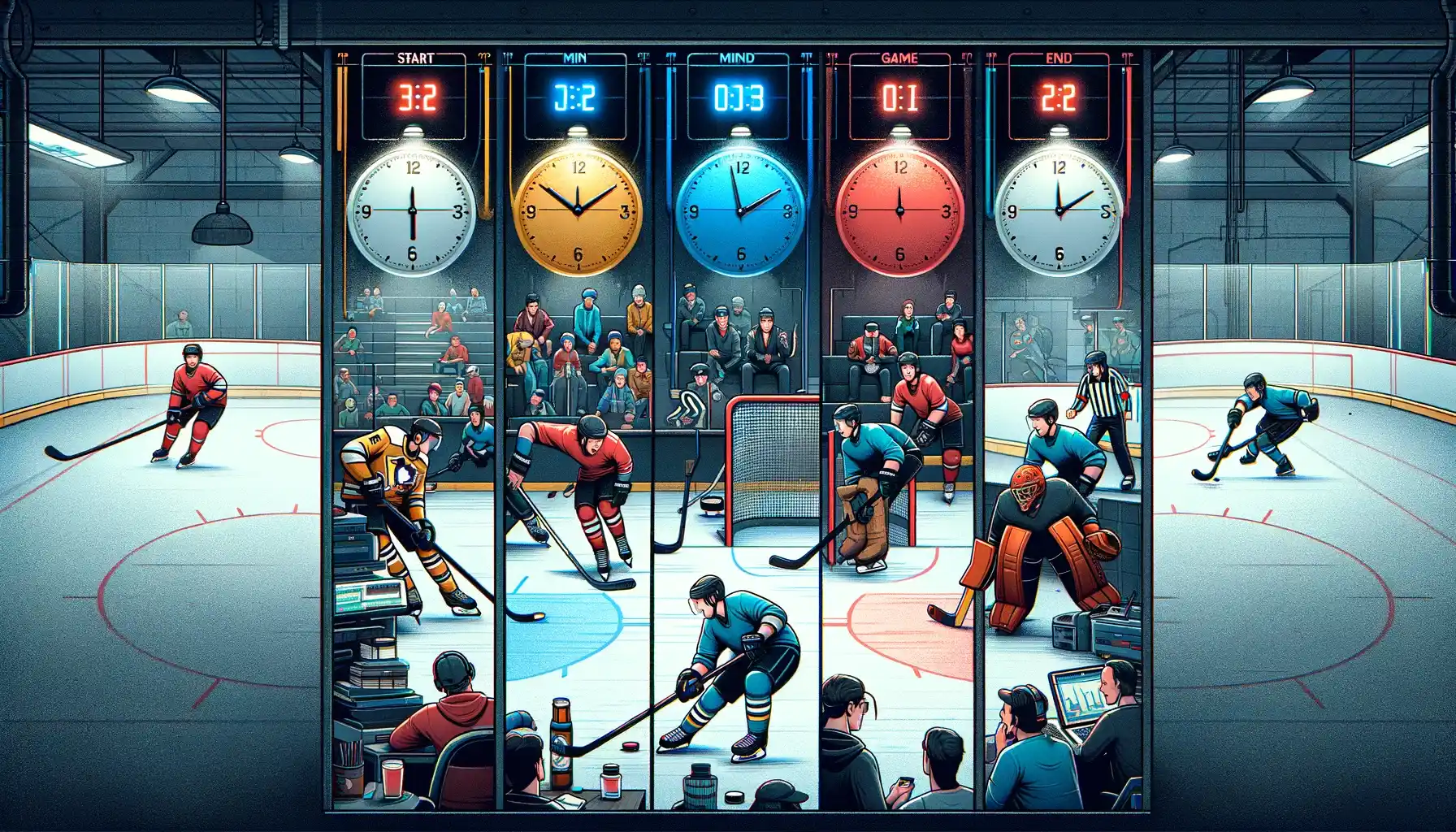For hockey players, wearing a suit on game day isn’t just about looking sharp—it’s a tradition rooted in professionalism, discipline, and respect for the sport. While other professional athletes have embraced casualwear, NHL players still step off the bus in tailored suits, honoring a legacy that dates back decades.
This tradition continues to evolve in 2025, blending team protocol, cultural expectations, and a growing awareness of personal style. Whether it’s an understated navy blazer or a bold patterned ensemble that lights up social media, the suit is both uniform and statement.
Reasons Why Hockey Players Wear Suits (And Why It Still Matters)
Why do hockey players wear suits to games? It’s a tradition steeped in meaning and respect. Let’s explore the reasons behind this unique aspect of hockey culture
1. Respect towards the Game
From the juniors to the NHL, wearing a suit reflects respect—for teammates, coaches, the organization, and the game itself. It signals that players are showing up ready to compete and uphold the sport’s standards, not just physically but mentally.
Looking to understand the intricate details of hockey? Check out this in-depth guide on hockey equipment.
2. Professionalism and Image
The NHL’s dress code for players is codified in the league’s Collective Bargaining Agreement (CBA) with the NHLPA. Since 1995, it’s been standard for players to wear suits on game days, particularly when arriving at the arena, traveling, or attending press conferences. The intent? To reinforce a professional image, both internally and to the public.
This formality sets hockey apart from sports like basketball or baseball, where relaxed dress codes have become common. In the NHL, players are ambassadors of their teams and the league—and suits play a part in shaping that image.
For more insights into professionalism in hockey, this article on body checking in hockey might be worth a read.
3. Team Unity and Culture
Game-day suits also serve a unifying purpose. When a roster walks into the arena dressed uniformly, it visually reinforces cohesion and focus. Some teams even establish color themes or guidelines, adding structure to this ritual while allowing room for personal touches like pocket squares or custom shoes.
Enhance your knowledge about team strategies by reading about ice hockey positions.
4. Mental Preparation
Many players view dressing well as part of their pre-game ritual. It’s a mental cue that the day is different—that the moment they zip that garment bag shut, the switch flips. This mindset helps athletes lock in before warmups even begin.
If you’re interested in sharpening your skills, these ice hockey skating drills may be helpful.
In the era of tunnel walk photos and team-run Instagram accounts, the suit has become a form of content. Players like David Pastrnak and Auston Matthews have made waves for their bold fashion statements—showing that style and performance can go hand in hand. Dressing well doesn’t just please coaches anymore—it connects with fans.
📊According to 2025 insights from Perplexity and team sources, NHL teams now share over 85% of pre-game outfit photos via social channels—up from just 40% in 2019.
In short, the suit is far more than a formality. It’s a statement of values, a tool for focus, and a bridge between tradition and modern identity. From the league’s official dress codes to individual locker room expectations, what hockey players wear says as much about the game as how they play it.
Historical Perspective
The tradition of wearing suits in hockey dates back nearly a century and reflects a time when formal dress was expected in public life. In the early days of the NHL, players routinely traveled by train and were required to wear suits to maintain a respectable public image. Former Maple Leafs executive Gerald McNamara even noted that in the 1960s and 70s, it was common for players to wear suits during team travel and game days—a reflection of both discipline and dignity.
Looking for an overview of hockey’s evolution? Here’s a comprehensive guide to ice hockey 101.
As societal norms evolved, so too did hockey fashion. The NHL formalized suit expectations in its 1995 collective bargaining agreement, codifying what had long been an unwritten rule. While the expectation for formality remains, today’s players bring their own flair—mixing in bold prints, sneakers, designer labels, and custom tailoring.
The Evolution of the Dress Code
- 1930s–1960s: Formal wear was standard across all public appearances—suits were a non-negotiable part of hockey’s early professional image.
- 1970s–1980s: Uniform team suits became a staple, often in matching colors and fabrics.
- 1990s–2000s: The NHL dress code became official. Players were required to wear suits on game day and while traveling.
- 2010s–2020s: Increased individual expression emerged—players used fashion to express identity while staying within team guidelines.
- 2025: Fashion and tradition continue to blend, with players seen as both athletes and influencers.
This blend of heritage and expression is what makes hockey’s suit culture so unique. It honors the game’s past while adapting to its modern, media-savvy future.
While exploring the formal attire of hockey players, delve into the variety of on-ice apparel. Learn more about diverse game gear with our guide on Hockey Clothing Brands.
The Suits and Attire
A hockey player’s game-day outfit isn’t random—it’s a curated reflection of tradition, professionalism, and personal style. While most NHL players opt for classic formal wear, many incorporate subtle flair and designer touches to make the look their own.
Types of Suits Hockey Players Wear to Games
- Dress Pants and Jackets: Tailored wool or performance-blend trousers paired with matching jackets are the standard. The fit is sharp, the look timeless.
- Blazers, Waistcoats, and Neckties: Some players elevate the classic look with three-piece suits or standout accessories like patterned ties, pocket squares, or lapel pins.
- Regional Variations: North American players tend to favor more conservative suits, while European players often experiment with color, fit, and unique accessories—bringing high-fashion influences into the rink.
Thinking about top hockey gear? Here’s a comparative review of CCM vs. Bauer.
Below is an overview of the common types of attire worn by hockey players, detailing various aspects of their formal clothing.
Common Garments Worn by Players
| Clothing Item | Description | Commonly Worn By |
|---|---|---|
| Dress Pants | Formal trousers, typically wool or a blend | NHL & Pro Players |
| Blazers | Tailored jackets with neckties or open collars | All Levels |
| Waistcoats | Sleeveless vests layered under jackets | NHL, Juniors |
| Neckties | Traditional or modern styled ties | Most Players |
Professionalism in Hockey
The suit isn’t just about dressing well—it’s about setting a tone. In the NHL, dress codes reflect the league’s commitment to professionalism and consistency across teams.
Why Does the NHL Have a Game-Day Dress Code?
- Professional Atmosphere: The dress code formalizes expectations on game days. Players are expected to arrive looking composed and ready, reinforcing the seriousness of the moment.
- Codified Standards: The NHL’s 1995 CBA was the first formal document to outline dress expectations, requiring players to wear business attire for games and travel.
- Rare Exceptions: Teams occasionally allow themed dress-up days or relaxed codes for certain travel days—but these are exceptions, not the rule.
- Brand Alignment: Teams are brands, and players are their faces. A sharp, consistent appearance helps align the on-ice product with the off-ice image.
Interested in hockey’s rules and regulations? Here’s an explanation of icing in hockey.
📌 Note: In 2025, team-issued style guides are more detailed than ever, offering preferred tailoring specs, color palettes, and even recommended brands to maintain consistency.
Comparing Hockey with Other Sports
Hockey stands out in the professional sports world for its continued adherence to formal dress codes. While leagues like the NBA have relaxed their policies to allow streetwear and designer casuals, the NHL continues to emphasize traditional suits as part of its culture.
-
Why Don’t Other Leagues Require Suits?
- NBA: Players often wear designer fashion or casual attire during walk-ins, reflecting the league’s embrace of individual expression.
- NFL: Attire is often mixed, with many players wearing suits, but without a strict league mandate.
- MLB: Most players travel in casual team-branded gear.
Hockey’s formality is both a nod to tradition and a statement of its unique culture.
Wondering about off-ice training? Check out this guide on off-ice training for hockey.
Are Dress Codes Losing Popularity?
There’s growing debate within hockey circles. Some players advocate for more flexibility, arguing that professionalism isn’t defined by a suit. Still, many veterans and team management view the dress code as essential to the sport’s identity.
Global and Youth League Trends
Here’s a glance at how various professional teams around the world adhere to the dress code:
| League/Team | Dress Code Policy | Exceptions |
|---|---|---|
| NHL | Full suit and tie on game days | Themed/travel days |
| European Leagues | Flexible style, often blazer and tie | Casual travel wear |
| Youth Leagues | Encouraged dress code for tournaments | Usually optional |
From North America to Europe, the core idea remains: dress like a professional, play like a professional.
Examples From Professional Teams Around the World
Hockey’s dress code transcends borders, reflecting a universal sense of respect and tradition. Teams from North America to Europe embrace this tradition with subtle differences that mirror their unique cultures.
Benefits and Controversies
Benefits
- Professional Image: Creates a unified and serious team identity.
- Focus and Mindset: Helps players mentally transition into game mode.
- Respect for the Sport: Reinforces values of dignity and tradition.
Controversies
- Limits Personal Expression: Critics say strict dress codes stifle individuality.
- Cultural Shift: In an age of relaxed fashion norms, some see suits as outdated.
- Economic Barrier: For younger players, affording tailored suits can be challenging.
The Future of Hockey Dress Codes
While some players and analysts foresee changes—like more relaxed travel attire or themed dress days—most agree that suits will likely remain part of the NHL game-day experience. The challenge will be finding balance between evolving trends and timeless tradition.
FAQ on Hockey Player Suits
Here we answer some of the most frequently asked questions about the intriguing tradition of hockey players wearing suits.
Why do hockey players wear suits?
To show respect, professionalism, and unity. It’s part of hockey’s cultural DNA.
What do hockey players wear to games?
Suits—including dress pants, jackets, ties, and sometimes vests—are standard attire.
Do suits help performance?
Indirectly, yes. They help players mentally prepare and arrive focused.
Are NHL players required to wear suits?
Yes. It’s outlined in the NHL’s Collective Bargaining Agreement.
Do players wear suits to practice?
Not typically, though some choose to.
Final Thoughts
Hockey’s suit tradition is more than a dress code—it’s a ritual. It ties today’s game to its roots, sets a professional tone, and reflects values that go beyond the ice.
As conversations around fashion, identity, and performance evolve, the NHL’s commitment to tradition continues to stand out. Whether the suit persists in its current form or evolves with the times, it will always be a symbol of what hockey represents at its core: respect, unity, and excellence.
References and Further Resources
The insights shared in this article are drawn from various sources, including interviews with professional players, coaches, and historians. Some references that contributed to this piece include:




